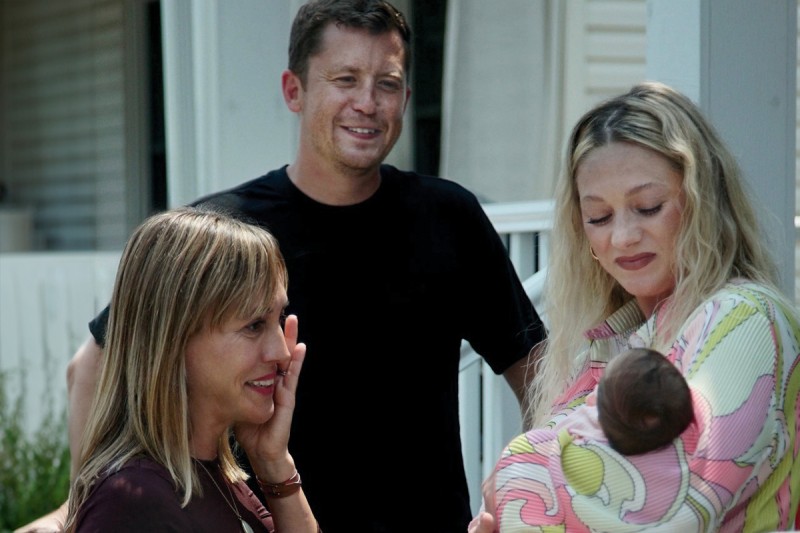
“Would you like to hold my baby?”
Kelly Spill’s question to Andrea Cercek, MD, is a familiar one from any proud parent. But as they sat together surrounded by Kelly’s family on her porch in southern New Jersey, that simple question took on a much more poignant meaning.
As she gently cradled 4-day-old Mya Grace in her arms, Dr. Cercek knew it also marked an incredible step forward in a medical journey that has drawn attention around the world.
“The day was so emotional. I cried again and again,” remembers Dr. Cercek. “I can’t put into words what it meant to hold Mya Grace. It was amazing.”
Just a few years earlier, Kelly feared her dream of a big family was shattered when she was diagnosed with rectal cancer at age 28. The news came shortly after the birth of her first child, Jayce. Kelly and her husband, John Bonito, were devastated.
“After Jayce was born, I knew I wanted another baby,” Kelly recalls. “But I was told at another hospital that the usual treatment for rectal cancer was brutal — and that it would make carrying more children nearly impossible. It was one of the hardest things to hear.”
She learned about another option offered by Dr. Cercek and her colleague Luis Diaz Jr., MD, who are both gastrointestinal oncologists. They and their team were conducting a clinical trial to investigate if people like Kelly, whose rectal tumors have a specific genetic mutation, could be treated with a form of immunotherapy alone.
If successful, it would mean the participants would be spared the standard treatment of chemotherapy, radiation, and surgery.
“The standard treatment does well in terms of curing the patient,” explains Dr. Cercek. “But it can seriously alter quality of life, and infertility for women is almost inevitable because of radiation. We wanted to try to help.”
Kelly enrolled in the trial. She received infusions of a form of immunotherapy called a checkpoint inhibitor, which helps the immune system recognize and attack cancer cells.
When the results of the trial were first reported, 18 people with rectal cancer had taken part in the trial. Remarkably, every single person, including Kelly, saw their tumor vanish without any additional chemo, radiation, or surgery — an outcome so rare it’s been calculated at a trillion to one.

Months after stopping treatment, Kelly learned she was pregnant with Mya. “I look at her as a miracle,” says Kelly, who told Dr. Cercek, “She’s here because of you.”
As Dr. Cercek was saying her goodbyes with happy tears and smiles, she was embraced by Kelly’s mother, while 3-year-old Jayce hugged Dr. Cercek’s leg.
“Kelly’s mom whispered, ‘Thank you for saving our family,’ ” recalls Dr. Cercek. “And that really drove home what this means for the next generation. For the people we treat, this is just the beginning.”
Dr. Diaz holds the Grayer Family Chair.